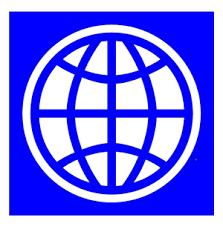
Sources:ieAgencies ::Mon, Apr 26 10:58 AM
The World Bank recognized China's growing economic influence and agreed Sunday to elevate Beijing's voting power to behind only the U.S. and Japan in the 186-nation lending organization.
Lifting China above a number of Western powers, including Germany, France and Britain, also gives other nations with emerging economies more voice and say in how the bank operates and lends money.
Bank members also decided to increase the institution's capital by $3.5 billion; it was the first increase in more than 20 years.

China's stake at the bank, in terms of voting power, climbs from
2.78 percent to 4.42 percent. The U.S., the world's largest economy,
remains No. 1 spot at 15.85 percent, effectively giving it veto
power, followed by Japan at 6.84 percent.
Countries such as China, Brazil, India and Russia long have
complained about the dominance of the United States and European nations in the bank's decisions. Under an informal agreement dating to the end of World War II, an American is president of the bank and a European leads its sister institution, the International Monetary Fund.
Robert Zoellick, the bank's president, said at a news conference that the shift in voting power "recognizes that we need to consign outdated concepts like 'Third World' to history. Today the world is moving toward a new, fast evolving multipolar economy."
Speaking after a meeting of the bank's policy-setting Development Committee, Zoellick said countries with emerging economies are critical sources of demand in the global economic recovery under way and over time "can become multiple poles of growth."
But Oxfam, a development advocacy group, said the World Bank broke a promise made at its meeting last year in Turkey to protect the voice of the poorest countries.

"Of 47 countries in sub-Saharan Africa, said Caroline Hooper-Box, an Oxfam spokeswoman, "more than a third have lost share, stayed the same and one (Sudan) has gained." Zoellick said the capital increase "means that we will no longer face the possibility that we would have to cut back our lending later this year."
He said the bank has provided $105 billion in financial support to its members since the financial crisis began to bite in July 2008.
Treasury Secretary Timothy Geithner said the bank "made a strong and compelling case" for the capital increase and said he would seek approval of the U.S. share - about $117 million each year over five years - from Congress.
No comments:
Post a Comment